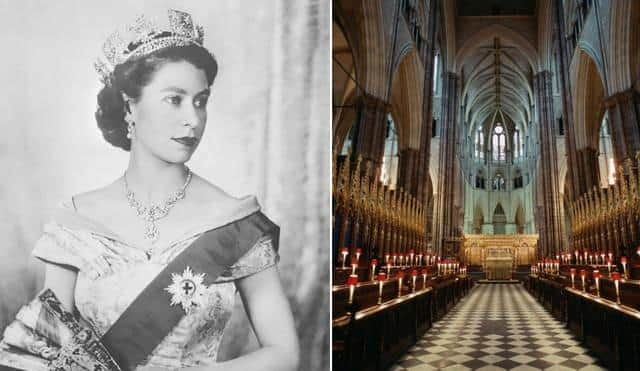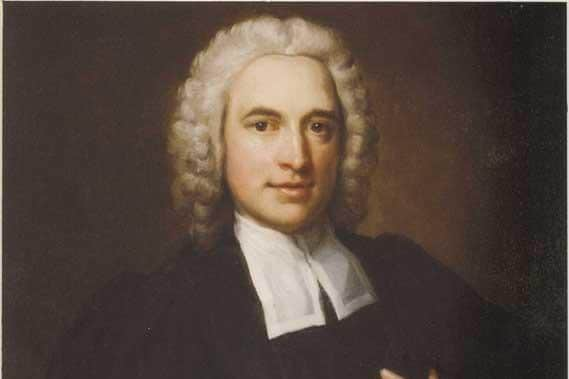Queen Elizabeth II: Hymn sang at her Her Majesty's funeral written by Charles Wesley of Epworth near Doncaster
and live on Freeview channel 276
The service for Her Majesty Queen Elizabeth II was led by the Dean of Westminster, with music sung by the choristers of The Choir of Westminster Abbey and The Choir of His Majesty’s Chapel Royal.
Westminster Abbey’s Organist and Master of the Choristers, James O’Donnell, directed the choirs and the Abbey’s Sub-Organist, Peter Holder, and Assistant Organist, Matthew Jorysz played the organ during the service.
Advertisement
Hide AdAdvertisement
Hide AdThe service will feature three hymns - The day Thou gavest, Lord, is ended; The Lord’s my Shepherd; and Love Divine, All Loves Excelling


The first hymn, ‘The day Thou gavest Lord is ended’, will be sung as after The Very Reverend Dr David Hoyle MBE, Dean of Westminster, gives the bidding. This hymn was notably performed as part of the celebrations for the Diamond Jubilee of Queen Elizabeth II’s great-grandmother, Queen Victoria, in 1897
The second hymn, ‘The Lord’s my Shepherd’, was one of Her Majesty’s favourite pieces of music, having featured in a list of the late Queen’s top 10 pieces of music revealed in 2016. This hymn will be sung after the second reading, read by the Right Honourable Elizabeth Truss MP, Prime Minister of the United Kingdom of Great Britain and Northern Ireland.
‘Love Divine, All Loves Excelling’, will be sung after The Lord’s Prayer is said. The hymn was written by prolific hymn writer, Charles Wesley, who wrote over 6,500 hymns including Hark! The Herald Angels Sing.
Advertisement
Hide AdAdvertisement
Hide Ad

Other musicians featured includer the State Trumpeters of the Household Cavalry, led by Trumpet Major Julian Sandford, the Fanfare Team of the Household Division Bands, conducted by Lieutenant Colonel David Barringer MBE, Commanding Officer, Household Division Bands, and the Queen’s Piper, Warrant Officer Class 1 (Pipe Major) Paul Burns, who will play out the service.
Epworth resident of 48 years Rebecca Turner said: “Did you notice the hymn Love devine, All loves excelling?
"This is a hymn written by Charles Wesley, who was from Epworth nearr Doncaster.
"Lovely to see this included on such a momentous day.”
As the ceremony came to a close The Last Post was sounded, then a two-minute silence, concluding with a sounding of The Reville.
Advertisement
Hide AdAdvertisement
Hide AdFollowing this, the congregation sang the National Anthem, ‘God Save The King’. The Sovereign’s Piper of the Royal Regiment of Scotland, Warrant Officer Class 1 (Pipe Major) Paul Burns, will then play the traditional Lament, ‘Sleep, dearie, sleep’.
Charles Wesley lived from 18 December 1707 to 29 March 1788, was an English leader of the Methodist movement.
Wesley was a prolific hymnwriter who wrote over 6,500 hymns during his lifetime.
His works include "And Can It Be", "Christ the Lord Is Risen Today", the carol "Hark! The Herald Angels Sing", and "Lo! He Comes With Clouds Descending".
Advertisement
Hide AdAdvertisement
Hide AdCharles Wesley was born in Epworth, the son of Anglican cleric and poet Samuel Wesley and his wife Susanna.
He was a younger brother of Methodist founder John Wesley and Anglican cleric Samuel Wesley the Younger, and he became the father of musician Samuel Wesley and grandfather of musician Samuel Sebastian Wesley.
In these confusing and worrying times, local journalism is more vital than ever. Thanks to everyone who helps us ask the questions that matter by taking out a subscription or buying a paper. We stand together. Dominic Brown, editor.
Comment Guidelines
National World encourages reader discussion on our stories. User feedback, insights and back-and-forth exchanges add a rich layer of context to reporting. Please review our Community Guidelines before commenting.
